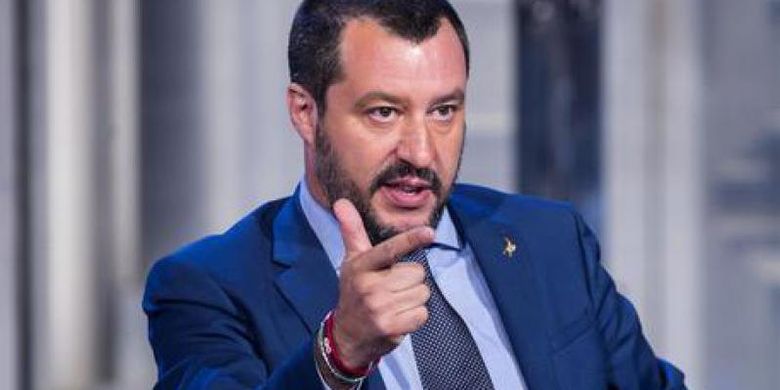Italy’s interior minister is declaring an almighty war on cannabis
Law 242/16 was then approved in Italy 2017, welcoming the ‘cannabis light’ craze
Italy’s Deputy Prime Minister, Matteo Salvini has made a pledge to shut down Italy’s “cannabis light” stores, which have posed a problem for the European country since 2016. It was during this year that hemp production became regulated countrywide.
Salvini, a 46-year-old Italian politician and self-declared fan of U.S. President Donald Trump, has assumed his current position since June of last year. He has been described as the country’s “new radical interior minister” after he launched an anti-immigration tyrade shortly after being appointed for the role.
“A war starts today, street by street, shop by shop, district by district, city by city,” Salvini declared following the closure of three stores in Rome on May 9. “I thank the police and the judiciary because three cannabis shops are being closed in Macerata, Porto Recanati, and Civitanova Marche.”
Although legal for industrial and medical purposes, and decriminalized for recreational purposes, the plant has stirred up nothing but trouble for the Italian official; mainly because it has been widely unregulated. He has declared that a governmental crisis could be brewing.
What is the “cannabis light” industry in Italy?

The cannabis light industry in Italy, albeit booming, has contributed to a highly unregulated economy for the country. A broad spectrum of cannabis and hemp flowers have been passing through the hands of customers inside stores operating under the cannabis light tag.
It started back in December of 2016, when a law was enacted to regulate hemp production for the creation of commercial products, such as biofuel, clothing, construction materials, food and animal feed. Hemp contains low levels of the psychoactive cannabinoid THC (tetrahydrocannabinol). What the government failed to regulate, however, was flower.
Law 242/16 was then approved in Italy 2017, welcoming the cannabis light craze, which allowed stores to sell cannabis and hemp products containing no more than 0.2 percent of the psychotropic cannabinoid THC.
Existing businesses operating in Italy’s industry are still permitted to sell their products, so long as the aromatic flower or bud is not consumed by the buyer, such as by smoking or ingesting edibles. The Italian minister’s announcement also prohibits store owners from cultivating the plant’s seeds.
Members of M5S object to Salvini’s decision to close ‘cannabis light’ stores in Italy

Carlo Sibilia, a member of M5S and the Interior Ministry Undersecretary, did not agree with Salvini’s choice to close ‘cannabis light’ shops throughout Italy.
“I don’t see why they should be closed,” said Sibilia, who added that, “the State should be supportive of small and medium-sized enterprises.”
Salvini went on to tell representatives from organizations that specialize in drug recovery that “he doesn’t want drug dealers roaming the streets, telling a Pesaro-based rally that, “drugs are bad for you.”
Leader of M5S and Luigi Di Maio also bit back at Salvini’s comments. Maio, who formerly served as Vice President of the Chamber of Deputies in the XVII Italian legislature, believes that the shutdown process was too quick.
“You can’t get up in the morning and close shops. We should work to have shops opening,” Maio said.
Salvini’s League and the Five Star Movement (M5S) have been at loggerheads as of late. At the European elections on May 27, Deputy Premier and Interior Minister Matteo Salvini’s right-wing League party won 34 percent of the vote, while Deputy Premier Luigi Di Maio’s 5-Star Movement (M5S) got 17 percent of the vote.








